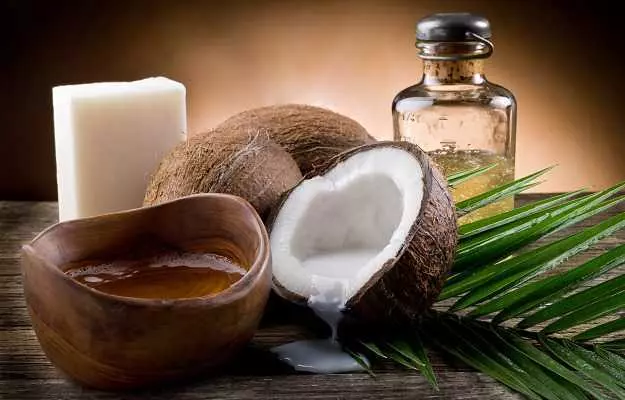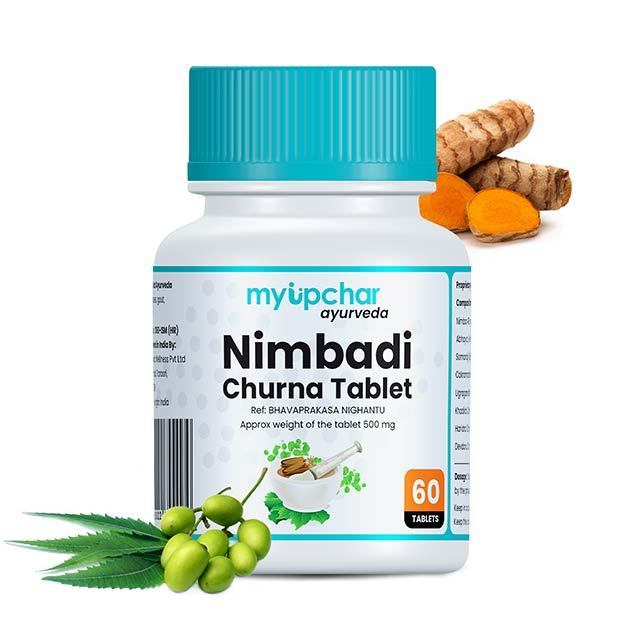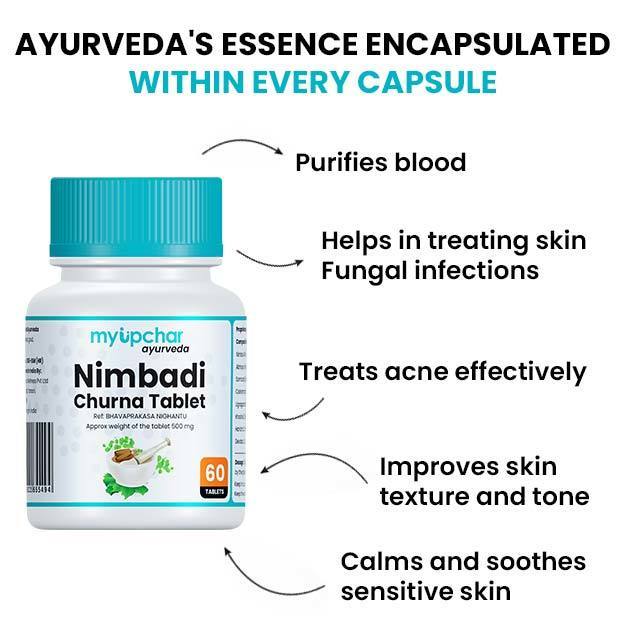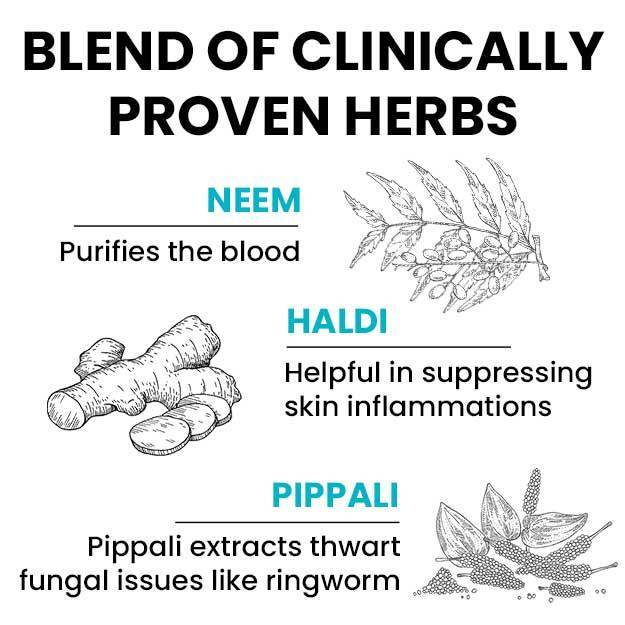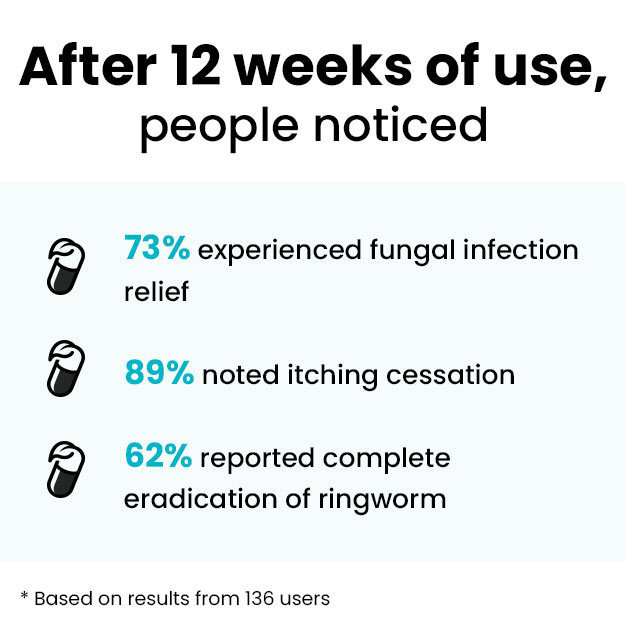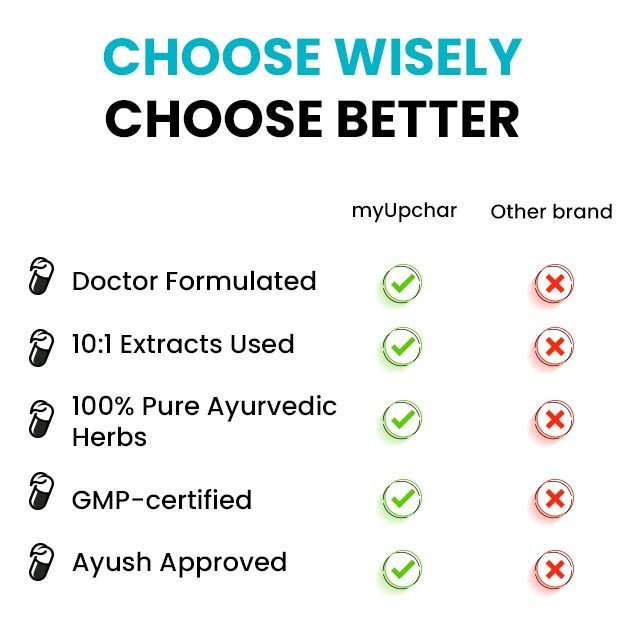Coconut oil is an oil extracted from the kernel of coconut which is the fleshy part of the coconut fruit. Different varieties of coconut oil are available in the market, depending on the method used to extract the oil. Common types of coconut oil include the refined and unrefined coconut oil.
Coconut oil is usually solid at room temperature because of its high melting point- 76 degrees F. Coconut oil is known to have a stable shelf life, especially if it is preserved properly. It is a unique amalgamation of fatty acids and can have positive effects on the human body. Therefore, this oil is highly suitable for cooking and can also be used as a moisturising agent for skin and hair.
Some basic facts about coconut oil:
- Scientific name of coconut: Coconut oil is derived from coconuts. The scientific name of coconut is Cocos Nucifera.
- Family Name: Coconut tree belongs to the palm tree family called Arecaceae.
- Common name: Nariyal tel
- Native Region: More than 90 countries in the world grow coconut trees. The largest producer of coconut oil is the Philippines, followed by Indonesia and India. Tamil Nadu, Kerala, Puducherry, Karnataka, Goa, Andhra Pradesh etc. are some of the states which grow coconut in India. According to the 2014-15 statistics of the Coconut Development Board of Government of India, just 4 states in South India accounted for 90% of the total coconut production in the country. Coimbatore and Tirupur are the top producers of coconut in India.
- Some interesting facts about coconut: The information about the origin of coconut is not known, but scientists believe that coconut is a prehistoric plant that came from the South Pacific. The sailors that were aboard Vasco da Gama’s ship are believed to have given coconut its name.
Coconut oil nutrition facts
Coconut oil is rich in lauric acid, which is a type of saturated fat. Although saturated fats aren't considered good for health, the type of saturated fat in coconut oil tends to increase the level of good cholesterol or HDL which is very beneficial for health.
The nutritional value of coconut oil as per USDA Nutrient Database is as follows:
| Nutrients | Value per 100g |
| Water | 0.03 g |
| Energy | 892 kcal |
| Fats | 99.06 g |
| Minerals | Value per 100 g |
| Calcium | 1 mg |
| Iron | 0.05 mg |
| Zinc | 0.02 mg |
| Vitamins | Value per 100 g |
| Vitamin E | 0.11 mg |
| Vitamin K | 0.6 µg |
| Fats/ Fatty acids | Value per 100 g |
| Saturated | 82.475 g |
| Monounsaturated | 6.332 g |
| Polyunsaturated | 1.702 g |
| Trans | 0.028 g |
Coconut oil health benefits
Coconut oil for cholesterol
Coconut oil contains about 82 g of saturated fatty acids per 100 g. Saturated fats are generally considered bad for health because it increases the level of bad cholesterol (LDL) in the body. A diet rich in saturated fats could lead to potential heart problems.
Although coconut oil contains saturated fats, about 50% of this fat is lauric acid. This lauric acid is believed to be responsible for increasing the level of good cholesterol (HDL) in the body. HDL or good cholesterol, in turn, helps in maintaining the heart and body health. A study done on a group of 116 people with coronary artery disease (CAD) showed that coconut oil significantly increased the level of HDL.
(Read more: High cholesterol symptoms)
Coconut oil suppresses appetite
The fatty acids present in coconut oil can help reduce your hunger and appetite. Coconut oil is rich in lauric acid, which is considered a medium chain triglyceride (MCT). In a clinical study, six healthy men were given foods with different amounts of long and medium chain triglycerides (MCT and LCT) for a certain period of time. The study showed that men who ate foods rich in MCTs consumed fewer calories a day on an average compared to men who consumed foods rich in LCTs. Another study constituting 14 men showed that the men who consumed breakfast rich in MCTs had a lower appetite.
Coconut oil for weight loss
Traditionally, coconut oil is believed to be effective in weight loss. Since coconut oil has medium-chain triglycerides (MCT), it could lead to weight loss in obese individuals. A study done on 13 people showed that replacing long-chain triglycerides (LCT) with MCT could lead to a reduction in body weight.
Another study done on 20 obese men indicated that coconut oil can reduce the waist circumference.
Coconut oil also proved to be effective in reducing the abdominal obesity in women. A study conducted on 40 women aged between 20 years and 40 years suggests that supplementing the diet with coconut oil for 12 weeks can help reduce the fat deposition in the abdomen.
(Read more: Weight loss diet chart)
If you are tired of dieting and exercising and are not able to lose weight, then use myUpchar Ayurveda Medarodh Fat Burner Capsule, it has no side effects, order it today and avail the benefits.
Coconut oil as an antimicrobial
Studies suggest that the lauric acid and Glycerol monolaurate or monolaurin present in coconut oil are effective against a certain type of bacteria called Staphylococcus aureus, which is capable of minor issues such as skin infection and pimples to life-threatening diseases such as meningitis and toxic shock syndrome.
Another study was conducted to evaluate the effectiveness of virgin coconut oil against the common infectious yeast, Candida. The study concluded that coconut oil is effective in inhibiting the growth of candida and it can be used to treat fungal infections caused by the Candida species.
(Read more: Fungal infection symptoms)
Coconut oil for skin
Coconut oil is not just an ideal choice of oil for cooking, but it can also do wonders for your skin. A study was done to evaluate if coconut oil can be used as a moisturizer for the skin, to treat dry skin or Xerosis. A group of 34 patients was given coconut oil to be applied on their legs twice a day for a continuous period of 2 weeks. The research concluded that coconut oil is safe to be used as a moisturizer and efficiently alleviates the problem of dry skin.
Atopic dermatitis (AD) is a skin condition that is characterized by itchiness and red skin. It causes the skin to lose the water holding capacity and thus turn dry. In a clinical trial, a group of 117 pediatric patients with this skin condition was asked to apply coconut oil on their skin for a period of 8 weeks. At the end of the study, it was observed that coconut oil was very effective in hydrating the skin along with reducing the symptoms of atopic dermatitis.
Coconut oil for hair
Coconut oil is also proven to be beneficial for the hair. It is considered to be an effective hair conditioner and has been used in various hair products. In a study that involving 30 people who were given coconut oil to be applied on their hair, it was observed that people who were given coconut oil have less hair breakage. Coconut oil has also been proven effective against combing hair damage in different types of hair. It has been reported that coconut can reduce the loss of hair proteins that is generally responsible for weak hairs and excessive hair fall.
Coconut oil for oil pulling
Oil pulling is an ancient Ayurvedic technique where one swishes oil inside their mouth for about 20 minutes. Although there isn’t much evidence on the effectiveness of this method, it is believed to enhance oral health and prevent dental issues. The most commonly used types of oil in oil pulling is sesame oil or sunflower oil. But studies have shown that coconut oil is also as effective in this method.
Several studies have been done to test the effectiveness of coconut oil in maintaining oral health. In a clinical study, a group of 60 boys and girls were asked to do oil pulling with coconut oil for 30 days. At the end of the study, it was concluded that coconut oil is effective against plaque formation and can be used to prevent gingivitis.
(Read more: Dental plaque treatment)
Coconut oil benefits in Alzheimer's
Alzheimer's disease is one of the most common causes of dementia in elderly individuals. It is believed that when someone has Alzheimer’s, their nerve cells do not use sufficient glucose to produce the required energy for proper brain functioning. Although there is not enough evidence that coconut oil could be effective against Alzheimer's, it is believed that coconut can act as an alternative source of energy.
Coconut oil is rich in lauric acid, a medium-chain triglyceride. A keto diet with moderate amounts of MCT could be beneficial to patients suffering from early to middle stages of the Alzheimer’s disease.
A study conducted on 20 patients with AD showed that consumption of foods rich in MCT led to an improvement in the brain function of patients suffering from milder forms of the disease.
However, more research is required to prove that MCT is fully effective against AD.
Coconut oil keto diet for epilepsy
A ketogenic diet is generally very low in carbohydrates and very high in fat. There are different variations of keto diets that are being used to treat seizures for a long time. Keto diet along with MCTs has especially been used for the treatment of epilepsy in children. A study conducted on 50 patients showed that MCT enhanced keto diet exhibits an excellent seizure control with minimal side effects. It was further suggested that MCT enhanced keto diets can be a good option for the treatment of epilepsy in children who have a bigger appetite and need more calories.
Coconut oil side effects
- Allergy
There have not been many reported cases of coconut or coconut oil allergy. In a single case, an 8-month-old baby was reported to have developed a severe gastrointestinal problem after being fed infant formula containing coconut.
It is a common misconception that people who are allergic to tree nuts are also allergic to coconut. But a study done on 40 children who were allergic to peanuts and other types tree nuts showed that they were not allergic to coconut. If you have never used coconut oil before, it is advisable to consult a doctor and get an allergy test. - Coconut oil can increase the level of bad cholesterol in your body
Although half of the saturated fats present in coconut oil is lauric acid, which is responsible for increasing the level of good cholesterol in your body, any food rich in saturated fats is likely to also increase the level of bad cholesterol (LDL) in the body. An increase in LDL is linked to heart problems. Therefore, if you are suffering from heart-related issues, coconut oil might not be an ideal choice.
Takeaway
It is true that coconut oil is called a “superfood”. It is rich in lauric acid which is very beneficial for the skin and brain health. It can do wonders for your body if consumed moderately.
Medicines / Products that contain Coconut oil
- Kesh Art Bhringraj Hair Oil for Controlling Hair Fall & Dandruff, Grow Hair 2X Fast - ₹546
- Panderm + Dusting Powder - ₹141
- Kerala Ayurveda Winsoria Oil - ₹230
- Kerala Ayurveda Sinactil - ₹199
- Neelkanth Oil Rollon - ₹140
- Hibril Oil - The Topical Stress Reliever 100ml - ₹210
- Planet Ayurveda Go Richh Hair Conditioner - ₹485
- Siya Oil - The Herbal Hair Oil Powered With Bhringraj 100ml - ₹200
- Vanalaya Aloevera Moisturizing Lotion - ₹320
- Siya Oil - The Herbal Hair Oil Powered With Bhringraj 200ml - ₹330
- Kesavardhini Concentrate Oil Pack of 4 (25ml Each) - ₹240
- Cave Ayurveda Herbal Hair Growth Serum - ₹195
- Siddhayu Diabo Yogue Cream - ₹208
- Hasthkar Handmades Glycerine Khus Soap 125gm (Pack of 4) - ₹300
- Hasthkar Handmades Glycerine Mix Fruit Soap 125gm (Pack of 4) - ₹280
- Himalaya Nipple Care Butter Cream 20gm - ₹72
- Dermadew Soap - ₹165
- Kerala Ayurveda Neelibringadi Keram - ₹350
- Kerala Ayurveda Nalpamaradi Keram - ₹180
- Aayucure Keshamrit Hair Oil - ₹299
- Kerala Ayurveda Murivenna Thailam 200ml - ₹195
- Kerala Ayurveda Murivenna Thailam 450ml - ₹370
- Samisha Hand And Nail Care Cream For Hand And Nail Treatment 75gm - ₹299
- Mamaearth Original Orange Body Lotion & Cream For Kids With Orange & Shea Butter 400 Ml - ₹399
- Vedi Himalayan Cedarwood & Patchouli Castile Soap Bar 100gm - ₹199
- Mamaearth Brave Blueberry Body Lotion For Kids With Blueberry & Kokum Butter 400ml - ₹399
- Tantraxx Kesh Mantra Hair Fall Control Hair Oil 100ml Pack Of 2 - ₹299
- Chetan Chetan Tila - ₹1102
- Sitaram Ayurveda Murivenna Oil 200ml - ₹160
- Sitaram Ayurveda Psoraherb Oil 100ml Pack Of 2 - ₹340
- Mediker anti lice treatment shampoo - ₹52
- Mamaearth Ubtan Face Wash with Turmeric & Saffron 100ml - ₹189
- Vedi Multi Herbal Shampoo With Hempseed Oil 200ml - ₹499
- Hasthkar Handmades Glycerine Anti-Fungal Anti Bacterial Soap-125gm pack of 4 - ₹340
- Deemark Herbal Hair Oil Plus 200ml (Pack of 2) - ₹1610
- Parama Naturals Lavender-Turmeric OVERNIGHT Nourishing Face Oil & Serum - ₹900
- Sumveda Murivenna Oil - ₹252
- Parama Naturals Lavender-Turmeric MOISTURIZING Hand & Body Oil - ₹900
- Bluhenn Essentials Lip Scrub 8Gm - ₹140
- Zenius Hair O Care Hair Oil 100 ml - ₹549
- Pure Nutrition Cold Pressed Raw Virgin Coconut Oil - ₹699
- Parama Naturals Turmeric ALL-DAY LITE Moisturizing Face Oil - ₹675
- Sumveda Mukkoothu Oil - ₹290
- Zenius Hair O Care Capsule Pack of 2 (60 each) - ₹1176
- Sumveda Neelibringadi Oil - ₹288
- Zenius Hair O Care Capsule Pack of 3 (60 each) - ₹1680
- Sumveda Dashapushpam Oil - ₹288
- Bluhenn Essentials Margarita Handmade Soap 75gm - ₹180
- Bluhenn Essentials Lip Masque 8 Gm - ₹140
- Bluhenn Essentials Eucamint Handmade Soap 75gm - ₹180
References
- Pishan Chang et al. Seizure control by ketogenic diet-associated medium chain fatty acids . Neuropharmacology. 2013 Jun; 69: 105–114. PMID: 23177536
- United States Department of Agriculture Agricultural Research Service. Basic Report: 04047, Oil, coconut. National Nutrient Database for Standard Reference Legacy Release [Internet]
- Health Harvard Publishing. Harvard Medical School [Internet]. The truth about fats: the good, the bad, and the in-between. Harvard University, Cambridge, Massachusetts.
- Health Harvard Publishing. Harvard Medical School [Internet]. Ask the doctor: Coconut oil and health. Harvard University, Cambridge, Massachusetts.
- Cardoso DA et al. A COCONUT EXTRA VIRGIN OIL-RICH DIET INCREASES HDL CHOLESTEROL AND DECREASES WAIST CIRCUMFERENCE AND BODY MASS IN CORONARY ARTERY DISEASE PATIENTS. Nutr Hosp. 2015 Nov 1;32(5):2144-52. PMID: 26545671
- Stubbs RJ, Harbron CG. Covert manipulation of the ratio of medium- to long-chain triglycerides in isoenergetically dense diets: effect on food intake in ad libitum feeding men. Int J Obes Relat Metab Disord. 1996 May;20(5):435-44. PMID: 8696422
- Van Wymelbeke V et al. Influence of medium-chain and long-chain triacylglycerols on the control of food intake in men. Am J Clin Nutr. 1998 Aug;68(2):226-34. PMID: 9701177
- Mumme K, Stonehouse W. Effects of medium-chain triglycerides on weight loss and body composition: a meta-analysis of randomized controlled trials. J Acad Nutr Diet. 2015 Feb;115(2):249-63. PMID: 25636220
- Kai Ming Liau et al. An Open-Label Pilot Study to Assess the Efficacy and Safety of Virgin Coconut Oil in Reducing Visceral Adiposity ISRN Pharmacol. 2011; 2011: 949686. PMID: 22164340
- Assunção ML et al. Effects of dietary coconut oil on the biochemical and anthropometric profiles of women presenting abdominal obesity. Lipids. 2009 Jul;44(7):593-601. PMID: 19437058
- Jon J. Kabara et al. Fatty Acids and Derivatives as Antimicrobial Agents . Antimicrob Agents Chemother. 1972 Jul; 2(1): 23–28. PMID: 4670656
- Ruzin A, Novick RP. Equivalence of lauric acid and glycerol monolaurate as inhibitors of signal transduction in Staphylococcus aureus. J Bacteriol. 2000 May;182(9):2668-71. PMID: 10762277
- Ogbolu DO, Oni AA, Daini OA, Oloko AP. In vitro antimicrobial properties of coconut oil on Candida species in Ibadan, Nigeria. J Med Food. 2007 Jun;10(2):384-7. PMID: 17651080
- Neal EG, Cross JH. Efficacy of dietary treatments for epilepsy. J Hum Nutr Diet. 2010 Apr;23(2):113-9. PMID: 20487176
- Liu YM. Medium-chain triglyceride (MCT) ketogenic therapy. Epilepsia. 2008 Nov;49 Suppl 8:33-6. PMID: 19049583
- Agero AL, Verallo-Rowell VM. A randomized double-blind controlled trial comparing extra virgin coconut oil with mineral oil as a moisturizer for mild to moderate xerosis. Dermatitis. 2004 Sep;15(3):109-16. PMID: 15724344
- Evangelista MT, Abad-Casintahan F, Lopez-Villafuerte L. The effect of topical virgin coconut oil on SCORAD index, transepidermal water loss, and skin capacitance in mild to moderate pediatric atopic dermatitis: a randomized, double-blind, clinical trial. Int J Dermatol. 2014 Jan;53(1):100-8. PMID: 24320105
- Burnett CL et al. Final report on the safety assessment of Cocos nucifera (coconut) oil and related ingredients. Int J Toxicol. 2011 May;30(3 Suppl):5S-16S. PMID: 21772024
- Mhaskar S et al. Hair breakage index: an alternative tool for damage assessment of human hair. J Cosmet Sci. 2011 Mar-Apr;62(2):203-7. PMID: 21635848
- Rele AS, Mohile RB. Effect of mineral oil, sunflower oil, and coconut oil on prevention of hair damage. J Cosmet Sci. 2003 Mar-Apr;54(2):175-92. PMID: 12715094
- Peedikayil FC, Sreenivasan P, Narayanan A. Effect of coconut oil in plaque related gingivitis - A preliminary report. Niger Med J. 2015 Mar-Apr;56(2):143-7. PMID: 25838632
- Stephen C. Cunnane et al. Can ketones compensate for deteriorating brain glucose uptake during aging? Implications for the risk and treatment of Alzheimer's disease. The New York Academy of Sciences, 14 January 2016
- Reger MA et al. Effects of beta-hydroxybutyrate on cognition in memory-impaired adults. Neurobiol Aging. 2004 Mar;25(3):311-4. PMID: 15123336
- Couturier P et al. [A case of coconut oil allergy in an infant: responsibility of "maternalized" infant formulas]. Allerg Immunol (Paris). 1994 Dec;26(10):386-7. PMID: 7702732
- Lisa M. Stutius et al. Characterizing the Relationship Between Sesame, Coconut, and Nut Allergy in Children . Pediatr Allergy Immunol. 2010 Dec; 21(8): 1114–1118. PMID: 21073539

